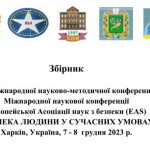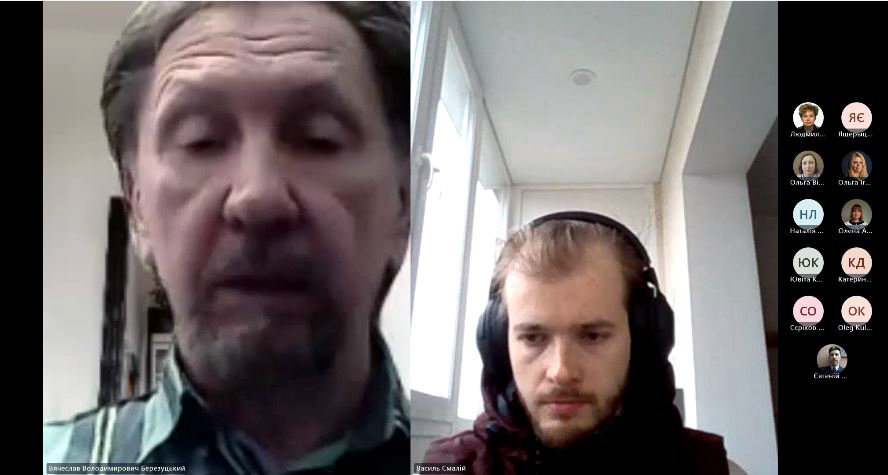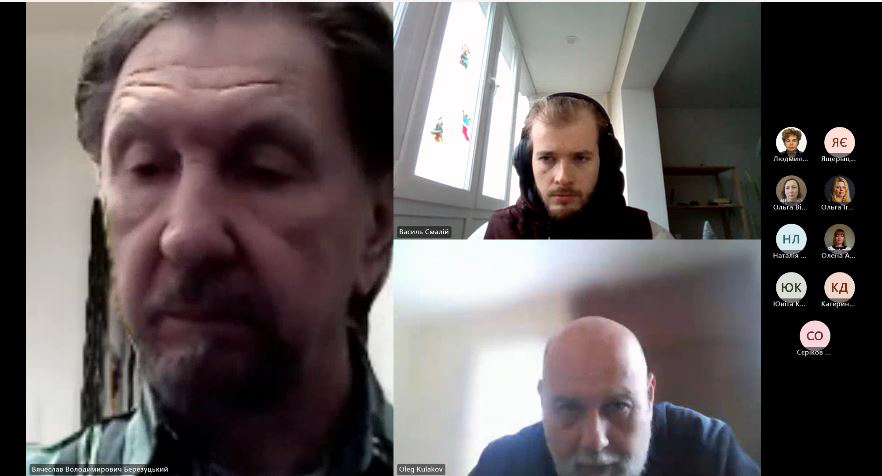 On December 7-8, 2023, the department held the XV International Scientific and Methodological Conference and the EAS International Scientific Conference «Human Safety in Modern Conditions» in online format. More than 92 abstracts of reports were submitted to the conference, with the number of participants – 190. Most of the reports were devoted to life safety during war and military operations.
On December 7-8, 2023, the department held the XV International Scientific and Methodological Conference and the EAS International Scientific Conference «Human Safety in Modern Conditions» in online format. More than 92 abstracts of reports were submitted to the conference, with the number of participants – 190. Most of the reports were devoted to life safety during war and military operations.


In the report «State program for reducing the consequences of war and improving the health of the disabled» (V.V. Berezutskyi – Ukraine, Rita Khalil – Jordan), urgent state projects of programs to reduce the consequences of war and improve health are considered I am disabled. The relevance of this issue has not decreased for more than 10 years in Ukraine, and now it is increasing due to the war.
The report «Modern technologies of conducting information and psychological warfare by totalitarian regimes» (V.L. Tsikanovskyi, S.V. Rotte, A.V. Volontyr – Ukraine) examines the main modern technologies used by totalitarian regimes for waging information and psychological warfare. The authors point out that recent advances in the digital age, from social media platforms to artificial intelligence, are giving criminals new powerful and effective tools.
In the report «Application of PC “LIRA-SAPR” for modeling progressive collapse» (Purdenko R.R., Otrosh Yu.A. – Ukraine), the phenomenon of progressive collapse during fire and explosion is considered. It is proposed to use LIRA-CAD software for modeling.
The report «Formation of blood donation culture as an element of life safety» (T.M. Portyanko – Ukraine) provides justification for the necessity and systemic approach to blood donation and its components.
In the report «Research on the peculiarities of humanitarian demining in a radiation-contaminated area» (Strilets V.M., Stepanchuk S.O. – Ukraine) the results of experimental research on the characteristics of humanitarian demining in a radiation-contaminated area are given and should be used not only for further use during the simulated simulation of the actions of the DSNS sappers, but also for substantiating specific operational and tactical recommendations, for example, regarding the selection of personal protective equipment for pyrotechnicians.
In the report «The importance of high-quality education of students for effective actions in emergency situations» (Antoschenkov R.V., Lyashenko G.A., Cherepnyov I.A. – Ukraine), the importance of the quality of studying disciplines is substantiated “civil security” in institutions of higher education for effective actions in emergency situations.
The report «Results of an online survey of NANSU cadets regarding the effectiveness of studying security disciplines under martial law» (Y.M. Danchenko – Ukraine) shows that distance learning is completely acceptable for the majority of applicants (88%) . At the same time, more than 80% of the respondents noted that studying security disciplines in this format is interesting and effective.
The report «The importance of occupational safety training for the safety of human life and health» (Liu Yujun – China, N.S. Yevtushenko – Ukraine) substantiates the feasibility of occupational safety training, which is an effective tool to improve employees’ security knowledge and develop their security skills. The importance of improving the safety situation at enterprises with the help of labor protection training is shown.
The report «Peculiarities of setting the classes and sizes of explosive zones according to the European standard on the example of a petroleum product pumping station» (O.V. Kulakov – Ukraine) gives the features of setting the classes and sizes of explosive zones when applying the standards of the International Electrotechnical Commission. Depending on the ventilation conditions, either an explosive zone of class 1, or an explosive zone of class 2 can be formed, or an explosive zone is not formed at all.
Specialists in labor protection, ecology, and civil protection took part in the conference – university teachers, graduate students, masters and students from Ukraine, Jordan, the Czech Republic and China.
Berezutskyi V.
